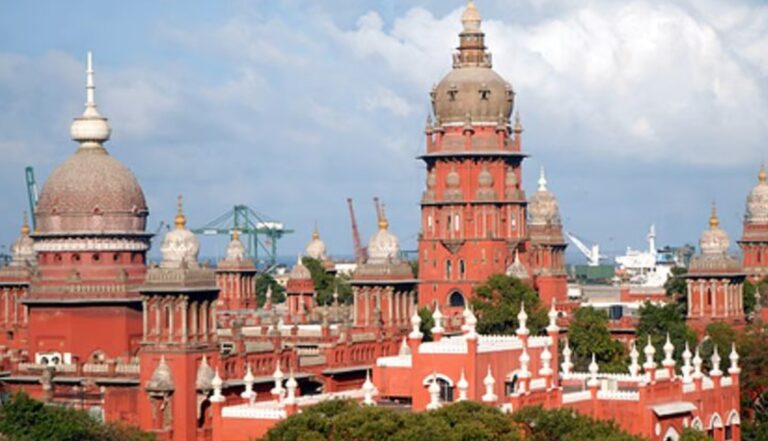The Madras High Court, in its judgment dated 5 August 2025 in Chandrasekar Balasubramanian v. Superintendent of CGST & Central Excise (W.P. No. 29038 of 2025), addressed the issue of GST registration cancellation on account of prolonged non-filing of returns. The petitioner, a sole proprietor, was unable to comply with statutory requirements due to severe health problems, leading to cancellation of registration by the department. The Court examined whether such cancellation, without considering genuine reasons and willingness to comply, was justified under the law. Ultimately, the Court adopted a balanced approach by restoring the registration subject to strict compliance conditions, thereby safeguarding both the taxpayer’s right to carry on business and the revenue’s interest.
Case Summary: Chandrasekar Balasubramanian vs. Superintendent of CGST & Central Excise
- Court: High Court of Judicature at Madras
- Writ Petition No.: W.P. No. 29038 of 2025 (with W.M.P. No. 32571 of 2025)
- Date of Order: 5 August 2025 (near the date you mentioned—one day earlier)
- Bench: Justice Krishnan Ramasamy
Facts:
- The petitioner, a sole proprietor operating as M/s Chandras Consultancy (Chennai), failed to file GST returns for over six months due to serious ill health.
- Consequently, the GST registration was cancelled vide an order dated 22 April 2024, issued in Form REG-19 by the Superintendent of CGST & Central Excise (Royapettah Range, Egmore Division, Chennai)
Petitioner’s Arguments:
- The failure to comply was genuinely due to health issues, and not willful default.
- He expressed willingness to file all pending returns and pay all tax dues along with interest and penalties.
- He challenged the cancellation as violative of Article 14 (equality before law) and Article 19(1)(g) (right to practice a profession, trade, or business) of the Constitution, particularly since no opportunity was given to explain his situation.
Respondent’s Position:
- While cancellation under Section 29(2)(c) of the CGST Act was justified, the authorities had no objection to restoration if dues were cleared—the respondent did not oppose the petitioner’s offer to settle the liabilities.
Court’s Findings & Reasoning:
- The court accepted that the failure to file returns was for genuine health-related reasons, not intentional.
- It held that cancellation under such circumstances was harsh and disproportionate, especially given the petitioner’s willingness to comply.
- A balanced approach was necessary—to preserve both taxpayer rights and revenue interests.
Order of the Court:
The court revoked the cancellation of GST registration, conditionally restored it, with the following requirements:
- File all pending returns within 4 weeks from restoration.
- Pay the entire tax liability, including interest and late fees.
- No adjustment of dues using unutilized Input Tax Credit (ITC) unless scrutinized and approved by a competent authority.
- Only verified and approved ITC may be used to meet future tax liabilities.
- Automatic cancellation of the restored registration if any condition is not met.
The petition was disposed of without costs.
Key Takeaways
- Humanitarian Relief: Courts can consider genuine health issues as a valid ground for judicial relief in GST compliance matters.
- Conditional Restoration: Perfect example of balancing taxpayer equity with safeguarding the revenue—restoration is granted, but with safeguards and strict conditions.
-
Guidance for Practitioners: When facing cancellation for non-filing due to unavoidable circumstances, this case signals that courts may intervene, provided there’s willingness to clear liabilities and follow conditions.
